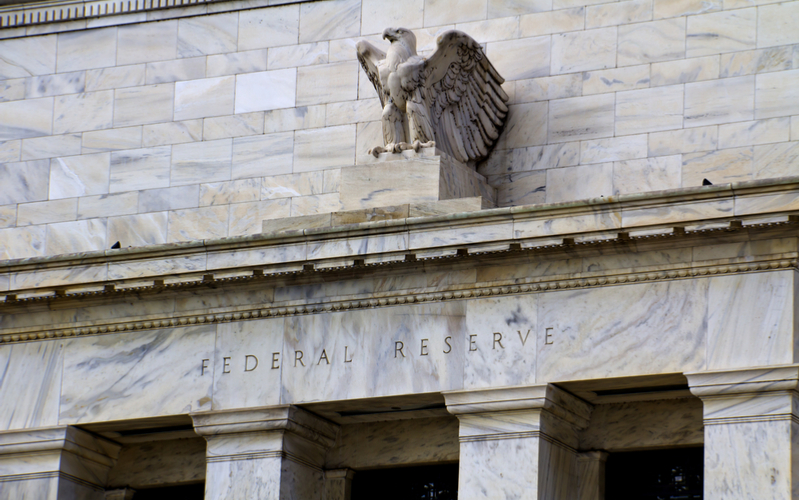Free Societies Don’t Need the Fed’s Managers
The President of the United States has drawn widespread censure in recent weeks for criticizing the Federal Reserve. He thinks that the increases in the federal funds rate are unnecessary and even potentially damaging to the ongoing economic boom. He has demanded these increases cease.
In a November 12, 2018 letter, Senators Chris Coons (D-DE) and Jeff Flake (R-AZ) called the president’s remarks “dangerous” and “ill-advised.” However, as Coons and Flake admit, the Fed must ultimately be accountable to Congress and the public.
Yes, we should indeed worry when elected officials try to pressure monetary policymakers. When monetary policy falls under the control of politicians, they tend to run the printing presses to serve narrow political rather than broader economic goals. At the same time, there’s been no meaningful check on the Fed’s power for decades. Fed officials have effectively become their own sovereigns.
While Trump’s behavior is short-sighted, there is nonetheless a valid concern that, in our haste to insulate the Fed from political interference, we have overlooked this lack of accountability.
The Federal Reserve System was created in 1913 in an attempt to shore up the banking system, which was notoriously unstable. The goal was to strengthen the nationwide bank clearing process, so that banks experiencing liquidity shortages could more easily access emergency funds.
The Fed was not created to undertake anything like monetary policy as we understand it today. In fact, its advocates explicitly denied that the Fed would be an active participant in the money market. But emergency measures adopted during World War I saw the Fed propping up the market for government debt by means that were the initial, crude undertakings of modern monetary policy. The Fed has been less a referee and more a player ever since.
Now the Fed is so much a part of our financial system that it is difficult to conceive what finance would look like without it. The Fed is staffed by some of the smartest people in the world: lawyers, economists, financial experts, and other specialists. This is seemingly all for the good. Monetary and financial policy are specialized areas within macroeconomics. Surely it makes sense, we are led to believe, to trust macroeconomic management to experts. The Fed, which appears to have made good use of this expertise while insulating itself from unseemly political influence, surely represents the best outcome we could reasonably expect.
But this argument is wrong. There are many historical cases of stable banking and financial systems with little public sector oversight and no centrally administered monetary policy. Three well-established cases are Scotland in the early 19th century, Sweden for a large part of the 19th century, and Canada for virtually its entire history until World War I.
The argument further reveals an underdeveloped political imagination. When we implicitly cede to the Fed the authority to tinker in financial markets, we are not harnessing the power of technocrats to make us all better off. We are selling our birthright of self-governance for the illusion of stable asset markets.
G.K. Chesterton, an English man of letters of the early 20th century, had political imagination in spades. His words about what it means to rule ourselves certainly suggest what our monetary institutions should look like. The following brief paragraph on the nature of democracy contains more insight than dozens of scholarly dissertations on the subject:
The democratic contention is that government … is not something analogous to playing the church organ, painting on vellum, discovering the North Pole (that insidious habit), looping the loop, being Astronomer Royal, and so on. For these things we do not wish a man to do at all unless he does them well. It is, on the contrary, a thing analogous to writing one’s own love-letters or blowing one’s own nose. These things we want a man to do for himself, even if he does them badly.… In short, the democratic faith is this: that the most terribly important things must be left to ordinary men themselves.
In other words, a society of free people refuses to outsource difficult social problems to would-be experts. It doesn’t matter how well trained these experts are. After all, the two worst macroeconomic disasters of the past 100 years – the Great Depression and the Great Recession – are themselves attributable to misguided Fed policy.
Self-governance is something we do in every public activity. Financiers, bankers, and ordinary citizens who are patrons of such professionals, have collectively repudiated their duty to participate in the governance of the financial system. The public discourse concerning the state of the financial system that once took place in trade associations and committees of concerned citizens has disappeared, replaced by a cold and sterile managerialism practiced by an insular and self-perpetuating macroeconomic elite.
Through decades of inattentiveness, we have implicitly granted the Fed the authority to treat the financial system like a chess game. An emergency loan here, a questionable asset purchase there, and before you know it, the Fed is actively picking winners and losers. We now regard this as normal. It doesn’t have to be.
Since 2016 there has been a national concern that democracy itself is on trial. The fix here is not merely boosting voter turnout, reforming election finance, and restoring lawful restraints on executive orders. Democracy is ultimately about how we order our common life together.
The Fed and the managerial-regulatory apparatus it oversees is undemocratic in the most meaningful sense of the term: it prevents genuine self-governance.
Trump’s intuition here is not entirely incorrect. The Fed needs to be accountable, not so much to politicians but to the people, through markets and the competitive discipline they impose. It’s time once again to assume the responsibilities associated with governing our monetary system, and to tell our would-be macroeconomic managers that we’ve had enough.









